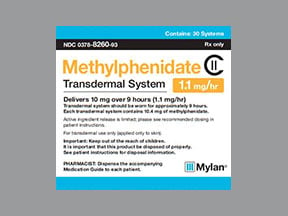
Daytrana Coupons & Savings Card – Discount Prices from $124.24
Brand for: Methylphenidate
My prescription
Edit
10MG/9HR, Methylphenidate (30 Patches)
Select pharmacy

CVS
$221.64
COUPON PRICE
Walgreens
$124.24
COUPON PRICE
Albertsons
$273.46
COUPON PRICE
Walmart
$455.93
COUPON PRICEDaytrana savings card
Show this card to your pharmacist
Walgreens
$124.24
BIN
ID
PCN
GRP
011867
LH4A982AB6
HT
LABH001
Powered by
Related central nervous system stimulants prescriptions
More prescriptions for narcolepsy
Related central nervous system stimulants prescriptions
More prescriptions for narcolepsy
Price history for Daytrana (brand) & Methylphenidate (generic)
30 Patches, 10MG/9HR
Average retail price for Daytrana
Average retail price for Methylphenidate
Average SaveHealth price for Methylphenidate
Our price history data is based on aggregated prescription data collected from participating pharmacies in America. Our prescription data updates daily to reflect the latest price changes. If you notice a missing data point, it means there wasn't sufficient data available to generate a monetary value for that date.
Over the last 12 months, the average discount price of Daytrana is $249.00 using the SaveHealth savings card. That's an average savings of 2.26% on Daytrana with our discount card.
*Retail prices are based on pharmacy claims data, and may not be accurate when we don't have enough claims.
Daytrana (Methylphenidate) dosage forms
Dosage Quantity Price from Per unit 10MG/9HR 30 Patches $221.64 $7.39 10MG/9HR 1 Patch $19.11 $19.11 15MG/9HR 1 Patch $18.72 $18.72 15MG/9HR 30 Patches $221.64 $7.39 20MG/9HR 1 Patch $18.91 $18.91 20MG/9HR 30 Patches $221.64 $7.39 30MG/9HR 1 Patch $18.83 $18.83 30MG/9HR 30 Patches $230.88 $7.70
| Dosage | Quantity | Price from | Per unit |
|---|---|---|---|
| 10MG/9HR | 30 Patches | $221.64 | $7.39 |
| 10MG/9HR | 1 Patch | $19.11 | $19.11 |
| 15MG/9HR | 1 Patch | $18.72 | $18.72 |
| 15MG/9HR | 30 Patches | $221.64 | $7.39 |
| 20MG/9HR | 1 Patch | $18.91 | $18.91 |
| 20MG/9HR | 30 Patches | $221.64 | $7.39 |
| 30MG/9HR | 1 Patch | $18.83 | $18.83 |
| 30MG/9HR | 30 Patches | $230.88 | $7.70 |
Has Daytrana been recalled?
As of the latest information available, Daytrana has not been recalled. It is always advisable to check with a healthcare provider or the FDA's website for the most current information regarding medication recalls.
How much does Daytrana cost?
The cost of Daytrana can vary depending on factors such as the pharmacy, location, and whether the patient has insurance coverage. Without insurance, the price can be quite high, often several hundred dollars for a month's supply. Patients are advised to check with their local pharmacy for the most accurate pricing and to inquire about any available discounts or patient assistance programs.
How much is the Daytrana patch out of pocket?
The out-of-pocket cost for the Daytrana patch can vary widely depending on factors such as the pharmacy, location, and whether the individual has insurance coverage. Without insurance, the price can range from approximately $400 to $500 for a month's supply. It is advisable to check with local pharmacies for specific pricing and to explore any available discount programs or manufacturer coupons that may help reduce the cost.
Is Daytrana FDA approved?
Yes, Daytrana is FDA approved. It is a transdermal patch used for the treatment of Attention Deficit Hyperactivity Disorder (ADHD) in children and adolescents.
Is Daytrana covered by insurance?
Coverage for Daytrana, a medication used to treat ADHD, can vary depending on the individual's insurance plan. It is recommended to check directly with the insurance provider to determine if Daytrana is included in the formulary and what the associated costs might be. Additionally, some manufacturers offer patient assistance programs that may help reduce the cost if it is not covered by insurance.
